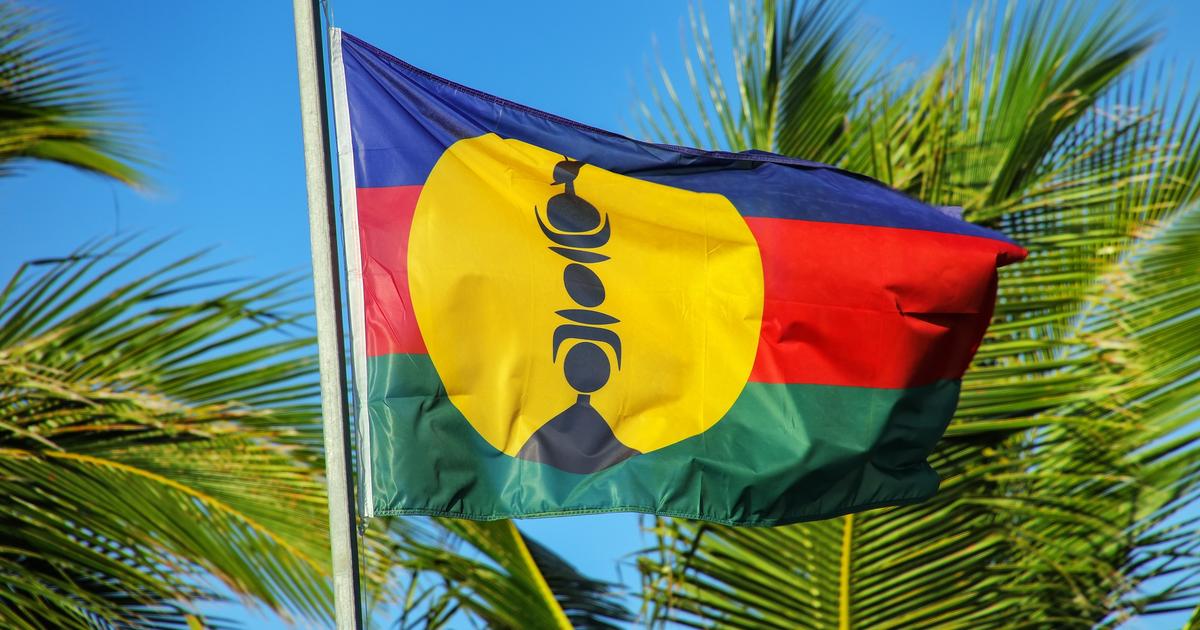The collegiate government of New Caledonia fell on Tuesday after the resignation of the independentists from the executive, who denounced "the impasse and immobility" in the archipelago.
The members of the FLNKS have five members of the executive branch out of 11. Their resignation, as well as that of their following list, causes de facto the fall of the government, elected by the members of the Congress.
A new vote will have to take place within 15 days, according to the status of the Nouméa agreement (1998).
In a press release posted online by the FLNKS, Louis Mapou, head of the UNI-FLNKS (National Union for Independence) group and his counterpart from the UC-FLNKS (Caledonian Union), Pierre-Chanel Tutugoro, indicate that they have "filed jointly ”a letter to the president of the government, Thierry Santa (loyalist).
"The members of the government (separatists) present their resignation", states this letter.
Controversial sale of a nickel plant
One of the reasons given by the FLNKS is the “sale process” of the nickel plant of the Brazilian group Vale “which puts the interests of multinationals first without taking into account the aspirations of local populations”.
READ ALSO>
5 minutes to understand why the future of a nickel factory sets New Caledonia ablaze
The sale of this industrial unit to a Caledonian and international consortium including the Swiss giant Trafigura, could be completed on February 12.
However, it raises an outcry in the independence movement and was at the origin of an outbreak of violence in December.
The factory is shut down after being stormed by rioters on December 10 and is the target of constant abuses.
The separatists also blame "the delay in the vote of the primitive budget" of the island, which was postponed to March, as well as "the institutional dynamic broken down and the consensus which is less and less the rule".
UNI and UC-FLNKS resign from the government of New Caledonia.
In question: the crisis of confidence in the file transfer of the factory of the South, on the initial budget and the absence of constructive dialogue with the State on the next consultation.
https://t.co/OSkiXWYqV6 pic.twitter.com/TI5llJmNL4
- NC La 1ère (@ ncla1ere) February 2, 2021
L'Avenir en Confiance (AEC), a coalition of the main non-independence parties from which the president of the government Thierry Santa came, criticized "an incoherent, irresponsible and dangerous decision".
"By causing an institutional crisis in the midst of the management of the health crisis, a possible budgetary crisis as well as strong economic and social tensions, the separatists pose an immense risk to the whole of New Caledonia", have they said in a statement.
Discussions with the State at a standstill
Leader of the Oceanian Awakening, a pivotal party in Congress capable of making and defeating majorities, Milakulo Tukumuli, estimated that this decision of the separatists had been taken "to block the cession of the Vale factory".
A meeting to validate the project with Trafigura by the executives of the communities, scheduled for February 12, would have been brought forward to Wednesday, according to several sources.
“I prefer institutional action to action on the ground.
We have already said, we believe that the sale of this factory should be postponed, the opposition is too strong ”, declared Milakulo Tukumuli.
The latter, however, did not specify whether or not his party would form a majority with the FLNKS "in this complicated context".
Political Newsletter
Our analyzes and indiscretions on power
Subscribe to the newsletterAll newsletters
Discussions with the State to prepare “after the Nouméa agreement” have stalled due to the conflicting sale of the Vale plant.
The archipelago is also facing an unprecedented budgetary crisis and an economy at half mast, due to institutional uncertainties and the Covid-19.
The fall of the government comes four months after the referendum on independence of October 4, won by a short head by the pro-French (53.3%).
A first referendum was held in 2018 and a third is still possible by 2022.









